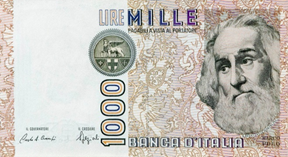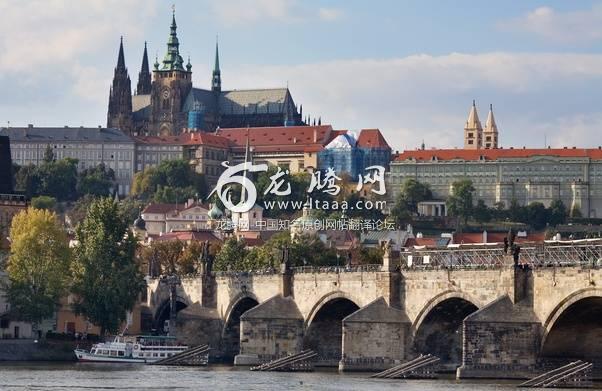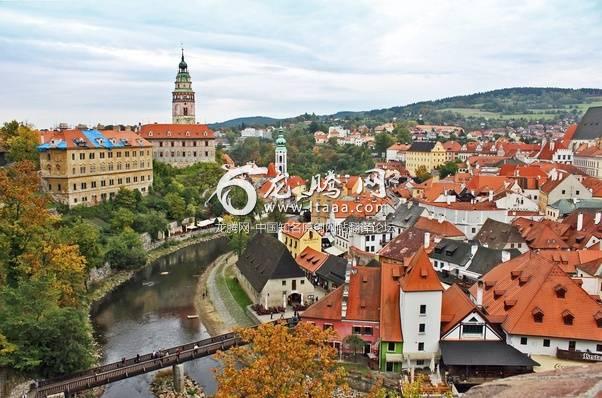有哪些过去强大但如今已经不再强大的国家?(一) [美国媒体]
卢森堡王朝:在哈布斯堡王朝在15至16世纪作为神圣罗马帝国的名义上的所有者出现之前,卢森堡王朝在将近一个半世纪的时间里拥有这一头衔。这一切都是从亨利七世开始的。在1312年,他作为一个折衷的候选人被选为神圣罗马帝国的皇帝......
Which countries were powerful in the past but no longer are?
有哪些过去强大但如今已经不再强大的国家?
回答一:
Muhammad Arkandiptyo, Historic enthusiast
Answered Apr 4
Brunei and Luxembourg.
Wait what???? They never even had a global empire like the others!
Haha. I only wanted to make a different answer than everybody else.
But really, Brunei and Luxembourg had their times as regional powers, during the middle ages. Let’s start.
文莱和卢森堡。
等等?它们甚至从来没有像其他国家那样拥有一个全球性帝国!
哈哈。我只是想给出一个和别人不同的答案。
但实际上,在中世纪时期,文莱和卢森堡都是地区强国。让我们开始吧。
Brunei
文莱
Brunei Darussalam today is just a tiny nation in Southeast Asia, if you don’t know it. They are one of the last few absolute monarchy in the world. The Sultan, Hassanal Bolkiah, is the Prime Minister and appoints his ministers as well.
Just like other remaining absolute monarchies in 2017, they are a Muslim country and also made themselves rich with oil.
But 5 centuries ago, they held the naval hegemony over Kalimantan/Borneo (the island that they are in), all the way up to Northern Philippines!
如果你不知道的话,我要告诉你文莱现在只是东南亚的一个小国。它是世界上最后几个绝对君主政体之一。苏丹哈桑纳尔·博尔基亚同时是总理,他还会任命他的部长们。
就像2017年的其他绝对君主国一样,它是一个穆斯林国家,也因为石油而暴富。
但在5个世纪以前,它在加里曼丹和婆罗洲(他们所在的岛屿)上拥有着海军霸权,这一霸权的控制范围一直延伸到菲律宾北部!
Enter Empire of Brunei (1368–1888)
文莱帝国(1368年至1888年)
The region where Brunei is itself already had a Kingdom since the 8–9th century. Most of the time they paid tributes to the bigger Empires in the south, most notably Sriwijaya and Majapahit. However they started to expand when the King converted to Islam in 1368, and they saw their chance through the decline of the Majapahit - the biggest Empire in Southeast Asia, encompassing modern day Southern Thailand, Malaysia, Singapore, Indonesia, Brunei, and Southern Philippines, the Empire was based in Java.
15th century saw Majapahit’s rapid decline, Malacca gained power in the western archipelago and Brunei saw theirs.
The area Brunei sailors were operating (South China Sea) was also known for their pirates. Through work, the Brunei Sultans actually cooperated with the pirates to gain hegemony over the region.
Some of their techniques include playing on local superstitions.
自8至9世纪以来,文莱就已经建立了一个王国。大多数时候,它都向南方的规模更大的帝国朝贡,其中最着名的是室利佛逝和满者伯夷。然而,当它的国王在1368年皈依伊斯兰教后,他们便开始了扩张,他们抓住了满者伯夷——东南亚最大的帝国,控制着泰国南部、马来西亚、新加坡、印度尼西亚、文莱和菲律宾南部等地区,并以爪哇为其大本营——衰落的机会。
15世纪见证了满者伯夷的快速衰落,满剌加在西部群岛攫取到了权力,文莱也看到了他们的机会。
文莱的水手们经营的这一地区(南中国海)也以海盗而闻名。通过努力,文莱苏丹实际上与海盗展开了合作,获得了该地区的霸权。
他们的策略包括推行当地的迷信活动。
It is believed that the name of Brunei itself came from Barunai, the local name of Varuna, the Hindu god of wind and seas. (Yes just like most of SE Asia, they were Hindu before converting to Muslims, and we SE Asians still assimilated some Hindu traditions to this day).
Personal story - one of my relatives had worked with the Bruneian royal family on some government projects before. And they hold the belief that they (current Bruneian royal family) descended from the Majapahit Princes. Probably not factual - most other royal families in the area like Mindanao and Sulu were descended from Malays, not Javanese. But back then, stories are facts that can move hearts.
据信,文莱的名字来自于巴鲁奈一词,它是印度教的风神和海神婆楼那在当地的名字。(是的,就像大多数东南亚人一样,他们在皈依穆斯林之前是印度教徒,而我们这些东南亚人至今仍吸收了一些印度教的传统)。
个人经历——我的一个亲戚曾在一些政府项目上与文莱皇室合作过。他们坚信,他们(现在的文莱皇室家族)是满者伯夷的后裔。这可能不是事实——像棉兰老岛和苏鲁地区的大多数其他皇室家族都是马来人的后裔,而不是爪哇人的后裔。但在那时候,这些故事是可以打动人心的事实。
And by the time the Europeans came (16th century), Brunei hegemony covers Borneo all up to Manila. Small kings in modern-day Philippines pay tribute to the Sultan of Brunei. This also coincided with Ming China’s retreat from outward trade expansionism, so Brunei was also effectively controlling traffic in South China Sea.
到欧洲人出现在这一地区的时候(16世纪),文莱的霸权已经完全覆盖了婆罗洲,一直延伸到了马尼拉。近代菲律宾的小国国王们都向文莱苏丹朝贡。与此同时,中国也在退出对外贸易扩张主义,因此文莱也有效地控制了南中国海的贸易。
So powerful was Brunei that the western name for their island Kalimantan, Borneo, is also etymologically derived from Brunei itself!
文莱的势力如此强大,以至于他们所在的加里曼丹岛的西部地区的名字——婆罗洲从词源上来说也衍生自文莱这个名词。
But their days were numbered - by the 17th century, the Spanish were consolidating their gains in Northern Philippines. The loss here made former domains like Mindanao and Sulu in Southern Philippines break away as their own Kingdom. While in the Southern Borneo, the rising Mataram Kingdom from Java and Makassar Kingdom from Sulawesi/Celebes also chipped away Brunei’s hegemony. So the Bruneians were limited to the northern coast of Borneo.
但是他们的辉煌日子已经屈指可数了——到了17世纪,西班牙人正在巩固他们在菲律宾北部的利益。这里的损失使得菲律宾南部的棉兰老岛和苏禄等文莱的前领地分裂成为独立的王国。在婆罗洲南部,从爪哇岛崛起的马塔兰王国和从苏拉威西和西里伯斯岛崛起的望加锡王国也削弱了文莱的霸权。于是文莱人的势力范围被限制在婆罗洲的北部海岸。
The death blow however, was given by the British throughout 18–19th century. By 1888, Brunei finally was a British protectorate.
然而,致命的打击则是来自18至19世纪的英国人。到1888年,文莱最终成为英国的保护国。
Luxembourg
卢森堡
This tiny Western European nation, sandwiched in between bigger countries, is now just a shadow of its medi self.
Well at least, they are much well off, far richer, than their neighbors (thank you, iron, railway transit and tax haven policies).
But actually, it’s not that Luxembourg itself was big - it was their dynasty.
这是一个很小的西欧国家,它夹在规模更大的国家之间,现在的它身上只能看到其中世纪前身的倒影。
但至少,它要比邻国富裕得多(谢谢钢铁、铁路运输和避税港政策)。
然而实际上,这里并不是说卢森堡本身曾经很大——说的是它的统治王朝。
The Luxembourg Dynasty
Before the advent of the Habsburg in the 15–16th century as titular holders of Holy Roman Empire in Germany, the Luxembourgs held the title for almost 1,5 century.
It all started with Count Henry VII. In 1312 he was elected Holy Roman Emperor, as a compromise candidate - the other candidate was a French Count, and many, especially those in modern day western Germany and Belgium, saw this as threatening.
Henry arranged the marriage of his son John to the heiress of Bohemian crown (modern day Czech Rep). This of course disgruntled the dominant families of Germany/HRE at that time - the much more famous Habsburgs of Austria and Wittelsbach of Bavaria. But it didn’t matter. Henry’s sons consolidated their new domains of Bohemia, and added some lands like Brabant (South Netherlands-North Belgium) and Brandenburg (around Berlin).
By the time his grandson, Charles IV (Karel Veliky/Ctvrti) came to power in 1346, the Luxembourgs were a force to reckon with. The Luxembourgs were the biggest lords of HRE/Germany.
卢森堡王朝
在哈布斯堡王朝在15至16世纪作为神圣罗马帝国的名义上的所有者出现之前,卢森堡王朝在将近一个半世纪的时间里拥有这一头衔。
这一切都是从亨利七世开始的。在1312年,他作为一个折衷的候选人被选为神圣罗马帝国的皇帝——另一个候选人是法国人,而许多人,尤其是那些居住于现代西德和比利时地区的人们认为这是一种威胁。
亨利安排他的儿子约翰迎娶了波西米亚(也就是现在的捷克共和国)王位的继承人。这当然是对当时日耳曼和神圣罗马帝国主要家族的不满——其中最为着名的是奥地利的哈伯斯堡家族和巴伐利亚的维特尔斯巴赫家族。但这并不重要。亨利的儿子们巩固了他们新获得的波希米亚地区,并且又增加了像布拉班特(南荷兰-北比利时)和勃兰登堡(位于柏林附近)这样的土地。
当他的孙子查理四世于1346年掌权时,卢森堡家族已经是一股不容轻视的力量。当时的卢森堡是神圣罗马帝国和日耳曼最大的领主。
And with the power, Charles IV made his capital, Prague, his pet project.
The Prague that we know now, with its impressive Hradcany (hill palace) and Karluv Most (Charles Bridge), all started with him.
Yes this all started in the 14th century, with a FOREIGN king from Luxembourg ruling over the area.
If you have ever been in Czech Rep., or just living around it, you know they have thousands of old castles and beautiful small towns lying around for tourists to see. Like this one in Cesky Krumlov / Boehmisch Krummau.
有了这个权力,查理四世就开始精心营造他的首都布拉格。
我们现在所知道的布拉格有着令人印象深刻的城堡区(山丘宫殿)和查理大桥,它们都是在他这一时期动工的。
是的,这一切都始于14世纪,一位来自卢森堡王朝的外国国王统治了这个地区。
如果你曾经去过捷克,或者干脆就住在那里,你就会知道,他们有成千上万可供游客参观的古堡和美丽的小镇。就像这个位于捷克克鲁姆洛夫地区的小镇。
It all started with the Luxembourg dynasty.
But eventually, the Habsburg got the better of them in the late 15th century.
When you are an upstart family from a small place to begin with, as long as the established rivals didn’t perish, they will strike back eventually.
And that’s what the Luxembourg failed to see beforehand.
Additionally, Bohemia was ravaged in religious wars of the Hussites, and again later Thirty Years War. The Luxembourgs had no way back to the European power stage.
这一切都始于卢森堡王朝。
但最终,哈布斯堡家族在15世纪晚期得战胜了卢森堡家族。
当你是一个从一个小地方起步的暴发户家庭,那么只要那些已经存在的竞争对手没有被消亡,他们最终都会展开反击。
这就是卢森堡家族之前没能看到的。
此外,波希米亚在胡斯宗教战争中遭到严重破坏,后来又在三十年战争中被蹂躏。卢森堡家族再也没有办法回到欧洲的权力舞台上。
Fun fact : Luxembourg could have been integrated into Germany if not for the Dutch. After Napoleon’s demise, the reinstalled Dutch King made Luxembourg and Limburg a Personal Union under the King of the Netherlands. Later on, Luxembourg broke away of course, but if not for this phase in the 19th century, they would have been easily absorbed into the growing Prussia (which later become the German Empire) like its neighbors did.
有趣的事实:如果不是荷兰,卢森堡可能会被整合到德国中去。拿破仑死后,重新上台的荷兰国王让卢森堡和林堡成为荷兰国王的私人联盟。卢森堡后来当然脱离了这一联盟,但如果不是在19世纪经历了这个阶段,他们很容易就会像它的邻居一样,被不断壮大的普鲁士(后来成为德意志帝国)所吞并。
So yes, what a historic ride with two small countries, isn’t it?
所以,是的,这是两个小国家的历史性旅程,不是吗?
回复
Ivan Skorvanek
Apr 4 · 3 upvotes
The Luxembourgs also ruled the Kingdom of Hungary and Croatia for a time under Sigismund, who was also king of Germany and Italy, and Holy Roman emperor, among other titles. Their downfall ocurred differently than you present though. It's not that they forgot something or underestimated the Habsburgs. They simply died out, Sigismund being the last in their male line. Albert Habsburg, as the son in law of Sigismund got hold of most of his titles after his death (although the Habsburg's didn't keep all of them, losing the Hungarian crown and only recovering it decades later thanks to a marriage pact with the Jagiello kings of Hungary after that line died out).
在西吉斯蒙德时期,卢森堡王国也统治着匈牙利和克罗地亚,他同时也是日耳曼和意大利的国王,以及神圣罗马帝国的皇帝。他们的垮台和你说的情况并不一样。这并不是说他们忘记了什么或者低估了哈普斯堡家族。他们只是都死光了,西吉斯蒙德是他们家族的最后一个男人。阿尔伯特·哈普斯堡作为西吉斯蒙德的女婿,在他死后获得了他的大部分头衔 (尽管哈普斯堡家族没有保住所有这些头衔,他们失去了匈牙利王位,几十年后仅仅是由于与匈牙利诸王的一份婚姻协议,在他们家族绝嗣之后重新获得了这一头衔)。
Alvin Edhitjia
Apr 5
Just to add, before Brunei became a British protectorate, their remaining lands were also chipped away by Rajah James Brooke (google white rajahs), a British privateer who gained land concessions in what is today Kuching and he essentially ruled as king and expanded it to what is today the state of Sarawak.
It is this kingdom as well as what’s left of Brunei that became British protectorates.
补充一点,在文莱成为英国的保护国之前,它所剩下的领地还被詹姆斯·布鲁克国王(请搜索白人国王)瓜分了一大块,他是一个英国海盗船长,曾在今天的古晋地区获得了一大块土地,并且作为国王统治了这一地区,并将其疆域扩大到,扩大今天的沙捞越一带。
正是这个王国以及文莱剩下的领土成为了英国的保护国。
Andre Rodenburg
Apr 5
Luxemburg didn?t really ?break away? from the Netherlands in the 19th Century in the sense of having a revolution or civil war (as in Belgium had in 1830).
In 1890, when king William III of the Netherlands, who was also Grand Duke of Luxemburg, died with only a female heir alive (queen Wilhelmina), the laws of Luxemburg at the time only recognized a male successor, so it became an independent Grand Duchy under a distant relative of William (Adolf of Nassau). In the 20th Century Luxemburg would recognize female succession, and it has since known some Grand Duchesses as head of state.
如果按照爆发革命或内战的标准而言(就像比利时在1830年时所发生的),卢森堡在19世纪并没有真正“脱离”荷兰。
1890年,荷兰的威廉三世国王——他同时也是卢森堡大公——去世了,他只留下了一位在世的女继承人 (威廉明娜女王),而卢森堡的法律只承认男性继承人的权利,所以它成为一个在威廉的远方亲戚(拿骚的阿道夫)统治下的独立大公国。在20世纪,卢森堡承认了女性的继承权,在此之后已经有几位女大公担任了国家元首。
Aleks Grechanuk
Apr 5
Lithuania as well. At its peak, Lithuania was the largest state in Europe.
还有立陶宛。在鼎盛时期,立陶宛是欧洲最大的国家。
回答二:
Sean Carlos, Used to play Guitar Hero
Updated Feb 12
The 4 most powerful nations in the past but no longer are anymore
四个过去最强大但现在已经不再强大的国家
1 - The British Empire
1、大英帝国
The British Empire was a massive multi-continental Empire that stretched from Canada to New Zealand, had the second largest population (China was still #1).
Over time it didn’t lose territories, they gradually increased their expansion of territories worldwide especially India and Africa, but after World War II most of them were given independence due to decolonization efforts by the UN.
Nowadays the United Kingdom of Great Britain and Northern Ireland is still a force to not be reckon with as it has a permanent seat in the Security Council which is nice way to say it’s still a formidable power.
大英帝国曾经是一个庞大的洲际帝国,它的领土从加拿大一直延伸到了新西兰,拥有去啊你去第二多的人口(中国仍然是第一)。
后来它并没有失去领土,反而逐渐扩大了在世界范围内的扩张进程,特别是在印度和非洲,但是在第二次世界大战后,由于联合国的非殖民化努力,这里领土中的大多数都获得了独立。
如今,大不列颠和北爱尔兰联合王国仍然是一股不可小觑的力量,因为它在安理会拥有一个常任理事国席位,这说明它仍然是一个强国。
2 - The Spanish Empire
2、西班牙帝国
The Spanish Empire was one of the first Global Empires in history that reached from Spain to the Philippines, it lost territories during the 1600s to 1800s (losing Naples, Sicily and their Holy Roman Territories that were given to Austria and Savoy).
Now then in the 1800s they pretty much lost almost their entire American Colonies due to Latin Wars of Independence, a famous example is the Mexican War of Independence during the 1810s.
Now then they fully lost their Asian and American colonies in the Spanish-American War (they sold their East Indies Islands to Germany in 1899 Purchase).
西班牙帝国是历史上第一个领土从西班牙延伸到菲律宾的全球帝国,它在17世纪到19世纪失去了大片的领土(丢失了那不勒斯、西西里和神圣罗马帝国的领土,这些领土被奥地利和萨伏伊所获得)。
在19世纪,由于拉丁美洲独立战争的爆发,他们几乎失去了整个美洲殖民地,一个着名的例子便是1810年的墨西哥独立战争。
之后,他们在美西战争中完全失去了他们的亚洲和美洲的殖民地(他们在1899年将东印度群岛卖给了德国)。
3 - The Ottoman Empire (Turkish Empire)
3、奥斯曼土耳其帝国
The Ottoman Empire was a large Muslim Empire that stretched to the ends of Mesopotamia to the far west of Algeria. They were a powerful state during the 1400s to 1700s till they gradually started to decline like the Spanish.
They were very powerful back in the past due to their standing armies and elite Janissary units that made the Ottoman Army look fearsome, they defeated numerous Christian Nations like the Byzantine Empire, Kingdom of Hungary and Principality of Wallachia, majority of them were annexed by the Ottomans, some of the few were made as vassals like Wallachia.
Then in 1900s they were defeated by the Entente (Allied) powers which tried to partition Turkey after defeating them, but this man named Ataturk would not let that happen and has founded Modern Day, Republic of Turkey.
奥斯曼帝国是一个庞大的穆斯林帝国,它从美索不达米亚的尽头一直延伸到阿尔及利亚的西部。在15世纪到18世纪,它是一个强大的国家,直到它像西班牙一样逐渐趋于衰落。
在过去,因其常备军和禁卫军——它让奥斯曼的军队看起来非常可怕,奥斯曼帝国是非常强大的,它击败了众多的基督教国家,比如拜占庭帝国、匈牙利和瓦拉奇公国,其中大部分被奥斯曼帝国吞并了,为数不多的——像瓦拉奇公国成为了它的附庸。
然后在20世纪,它被协约国(同盟国)打败了,他们试图在打败土耳其之后分裂它,但是那个叫阿塔图尔克的人阻止了这种事情的发生,他建立了现代的土耳其共和国。
I’ll add another one since I believe some people are requesting Mongolia’s great history as it used to be a great empire!
我还会再加一个例子,因为我相信有些人会要求拿出蒙古的伟大历史,因为它曾经是一个伟大的帝国!
4th - The Mongol Empire
4、蒙古帝国
The Mongol Empire was the largest continental empire that stretched from the ends of Korea (Asia) to the point of Poland (Europe), it’s first leader Genghis Khan led his people to conquer the known world around him, fighting the local Turks that dominated the area first before the Mongols then dominated them then they fought against the Chinese, Koreans and the Jurchens in East Asia.
When the Mongol Empire collapsed it fell into various states that were powerful even after the fall of the Mongol Empire, one known state is the Yuan Dynasty and the Golden Horde.
蒙古帝国是有史以来最大的陆上帝国,它的领土从韩国的尽头(亚洲)一直延伸到波兰(欧洲),它的第一个领袖成吉思汗率领他的士兵征服了周围的已知世界,打败了在他们之前统治这片地区的突厥人,然后他们打败了东亚的中国人、朝鲜人和女真人。
当蒙古帝国崩溃时,它分裂成了多个国家,而这些国家也是非常强大的,其中两个便是元朝和金帐汗国。
回答三:
George Mitchell, Data & ETL Architect, Photographer & Travel at Terra Encounters (1994-present)
Answered Apr 24
I feel it strange that Mongolia has been ignored by all but a few responders. The largest empire in Terran history was the Mongol Empire (1206 to 1687) stretching from China to Hungary.
Mongolia had an impact on the Hungarian and Finnish languages as well as introducing many words into Russian. The Mongols cut Russia off from Europe and turned their outlook towards Asia.
The Mongols unified various Russian territories into one unit and made Moscow’s rulers their tax collectors. This led to the Russian people treating a very large geographic area as their domain with the capital in Moscow.
They influenced the culture, government and even the architecture — the domes and tiles around Red Square reflect Asian influences.
In China the Mongol Empire was known as the Yuan Dynasty. The Mongols built a new capital city in Beijing! They also built many roads which helped both trade and the military.
The Mongols were strong supporters of trade along the Silk RoadS — yes there were multiple trade routes. This created the largest free trade zone in Terran history and forever linked the West to the East. They disseminated the decimal system from India all over their empire. They also spread the use of their typical clothing, pants!! Maybe you’ve heard of them? They are more practical for a nomadic people riding horses.
我感到奇怪的是,除了少数答者之外,蒙古被所有人忽视了。人类历史上最大的帝国就是蒙古帝国(1206年至1687年),它的疆域从中国一直延伸到匈牙利。
蒙古对匈牙利语和芬兰语有着深远影响,并向俄语中引入了许多词汇。蒙古人切断了俄罗斯与欧洲的关系,让他们将目光转向了亚洲。
蒙古人把俄罗斯的各个领土统一在了一起,并让莫斯科的统治者成为他们的收税员。这导致俄罗斯人把一片非常广袤的地理区域作为他们的领土,而它的首都就在莫斯科。
它影响了俄罗斯的文化、政府甚至建筑——红场周围的穹顶和瓷砖就反映了亚洲的影响力。
在中国,蒙古帝国被称为元朝。蒙古人在北京建立了一个新的首都!他们还修建了许多道路,推动了贸易的发展和军队的行进。
蒙古人是丝绸之路贸易的坚定支持者——是的,当时有多条贸易路线。这创造了人类历史上最大的自由贸易区,并将西方与东方联系在一起。他们在整个帝国中传播来自印度的十进制数字系统。他们还传播了他们的典型服装,裤子!!也许你听说过这种东西?对于骑着马的游牧民族来说,它更实用。
They instituted the practice of diplomatic immunity and guaranteed the security and safety of travelers. This led Marco Polo to travel to China during the Yuan Dynasty. Marco brought back the concept of paper money to Europe among many other things. That is Marco Polo on the old 1000 Lira above. Note that Marco Polo was from Venice, which is not just a pretty place. It was THE major European power in the Medi Ages. Why? Because it dominated trade between the Silk Routes and Europe. Also see Was the Fall of Rome Important?
China also gave the compass, printing, and gunpowder to Europe thanks to the Silk Routes. Without these major inventions, Europe would not have gone on to colonize the rest of the world.
On the other hand, the Silk Routes spread the Bubonic Plague, aka Black Death to Europe. In the mid-1300s the epidemic wiped out about one-third of Europe's population. This led to the end of feudalism, the growth of capitalism, and the rise of city-states. The Black Death also led to the decline of the Mongol Empire and therefore to the Yuan Dynasty of China.
The fall of the Mongolian Empire led to the disruption of the Silk Trade Routes — they were not maintained or protected from brigands. This ultimately led to the European search for a sea route to Asia and the discovery of the Americas. All in all, the Mongol Empire was pretty significant to world history.
他们创造了外交豁免权的做法,保证了旅客的安全。这使得马可波罗在元朝时来到了中国。马可波罗把纸币的概念带回了欧洲,还有许多其他的东西。上图中的1000里拉纸币中的人物就是马可波罗。值得注意的是,马可波罗来自威尼斯,这不仅仅是一个美丽的地方。它是中世纪欧洲的一股主要力量。为什么?因为它主导了丝绸之路和欧洲之间的贸易。
因为丝绸之路的存在,中国还向欧洲提供了指南针、印刷术和火药。如果没有这些重大发明,欧洲就无法继续在世界其他地方殖民。
另一方面,丝绸之路传播了,也就是欧洲的黑死病。在13世纪中期,这种流行病消灭了欧洲三分之一的人口。这一事件导致了封建主义的终结和资本主义的发展,以及城市的崛起。黑死病也导致了蒙古帝国以及中国的元朝的衰落。
蒙古帝国的覆灭又导致了丝绸贸易路线的中断——它们不再得到维护,以及免于强盗袭扰的安全保障。这最终推动了欧洲人去寻找通往亚洲的海上航线,以及美洲的发现。总而言之,蒙古帝国对世界历史的意义非常重大。
版权声明
我们致力于传递世界各地老百姓最真实、最直接、最详尽的对中国的看法
【版权与免责声明】如发现内容存在版权问题,烦请提供相关信息发邮件,
我们将及时沟通与处理。本站内容除非来源注明五毛网,否则均为网友转载,涉及言论、版权与本站无关。
本文仅代表作者观点,不代表本站立场。
本文来自网络,如有侵权及时联系本网站。
图文文章RECOMMEND
热门文章HOT NEWS
-
1
Why do most people who have a positive view of China have been to ...
- 2
- 3
- 4
- 5
- 6
- 7
- 8
- 9
- 10
推荐文章HOT NEWS
-
1
Why do most people who have a positive view of China have been to ...
- 2
- 3
- 4
- 5
- 6
- 7
- 8
- 9
- 10












